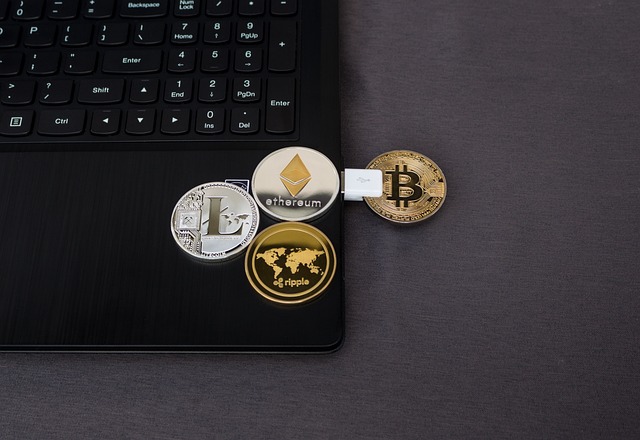Cryptocurrency is one of the most popular assets to trade in nowadays. While for some people, this is a positive sign signifying there’s a lot of engagement and the market is doing well, others are worried that it is a case of all show and no go and that cryptocurrency holds no real, definite value. The latter view is decidedly flawed and primarily based on stereotypes and a lack of understanding of digital money and what it means.
Since you can’t actually hold cryptocurrency in your hand and it exists solely on the blockchain, it’s easy to fall into the trap that there’s nothing more to it than that. But cyber money isn’t exclusively the domain of a few niche groups anymore, and an ever-growing number of traders are seriously considering diversifying their portfolios with its help. If you’re not yet convinced and are worried trading in crypto is more or less a fad, here are some points that might just change your mind.
Ease of use
Crypto sounds difficult in theory, particularly if you’re not very tech-savvy. The technology associated with it is relatively new and not used on a broad scale, so it’s unlikely you’ll become familiar with it unless you spend a lot of time interacting with blockchain networks. But if you’ve never done that before, it doesn’t mean that trading is impossible. In fact, it is relatively easy. All you need to do is set up an account on an exchange, wait for it to be verified, deposit your fiat currency of choice, and start trading.
If it makes you feel safer, you can take the time to do some proper research and learn more about how the decentralized ledger works. Getting some know-how will make you become a more confident trader.
Transaction speed
The transaction speed is one of the main advantages of performing transactions in crypto and why so many people choose to undertake them. While in the case of fiat currency, it can take a few days for a transfer to be completed (even more depending on geolocation and how far the sender is from the recipient), which isn’t a problem in the case of cyber money. For example, a Bitcoin transaction takes roughly one hour to complete. This is the amount of time it takes miners to confirm your transfer six times before allowing it to be processed. In the case of altcoins, the transactions can be completed in only a few minutes, but this also presents a potential safety risk. Bitcoin transactions last a little longer because security measures are more thorough.
Inflation hedge
Cryptocurrencies can potentially provide a good hedge against inflation. This is particularly the case for coins with a limited supply cap, such as Bitcoin. The next time you check the BTC coin price before commencing a transaction, you might want to consider this long-term implication of the currency. Bitcoin’s relative scarcity compared to the traditional money issued by central banks and government authorities makes it a valuable asset and ensures its value appreciation levels remain stable even during times of general monetary inflation.
Transactional freedom
Blockchain technology is based on a system that forbids censorship and believes in the importance of everyone controlling their private data and personal information. The network allows for an exchange transpiring between two parties to stay between them. No third authority is involved, whether a bank or a brokerage. This makes crypto transactions a much safer alternative in the view of a significant number of traders. While it also implies that you have a higher personal responsibility towards ensuring your money is safe at all times, it feels liberating not having to worry about your information somehow leaking during the exchange.
There are some situations in which banks can choose to deny individuals services for any reason. These measures typically target certain demographics, namely journalists or political dissidents living in countries governed by political regimes with totalitarian tendencies. But there’s no central authority governing Bitcoin, so it’s complicated, if not wholly impossible, to stop anyone from using them.
Open markets
If you’re not a full-time trader and want the option of conducting transactions when you have free time for them, crypto is the way to go. While traditional stock markets are generally open only on weekdays and during regular business hours, cryptocurrency markets operate without any exception. So, if you find it easier to trade at night or during weekends, you can do so quickly, and no worry that the market won’t be open for business.
There are some things that can interrupt you from trading crypto, of course, namely internet outages or power cuts, but under normal circumstances, you can trade Bitcoin to your heart’s content regardless of the day and time.
Adaptability
Given the novelty of blockchain technology, it is still changing and evolving rather rapidly. Many projects are taking active steps to become more efficient. One of the main disadvantages of crypto has always been the sheer amount of energy that it consumes. In order to mind cyber money, miners use a tremendous amount of energy that is unsustainable in the long run. For this reason, developments in blockchain technology have focused on reducing the amount of power used by up to 99%.
Other updates are seeking to make transactions faster and to improve overall security. It’s no easy feat, but these changes might be the first step towards cryptocurrencies entering the mainstream market even further. They might become as widespread as fiat money in a few years and be used for daily transactions and purchases.
Specialization
Although a relatively new phenomenon, crypto has been increasingly designed with specific projects or uses in mind. Some are created to work within the metaverse. Others are used in the gaming industry to help produce tokens and other in-game assets. Some are also designed with the fundamental purpose of being used within the business context.
If you’re thinking about joining in on the crypto craze, there are many reasons to do so, apart from the fact that it’s popular to do so right now.







